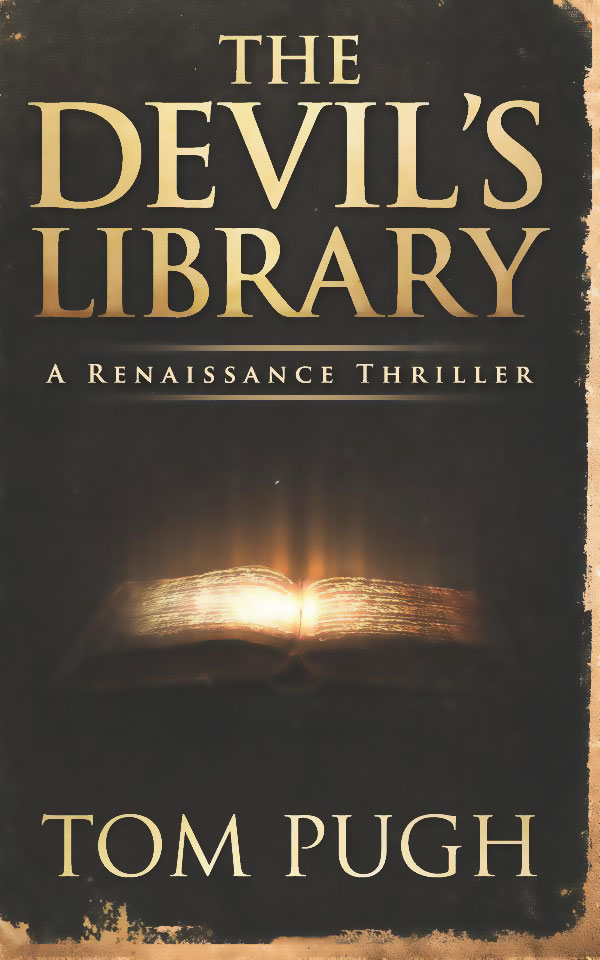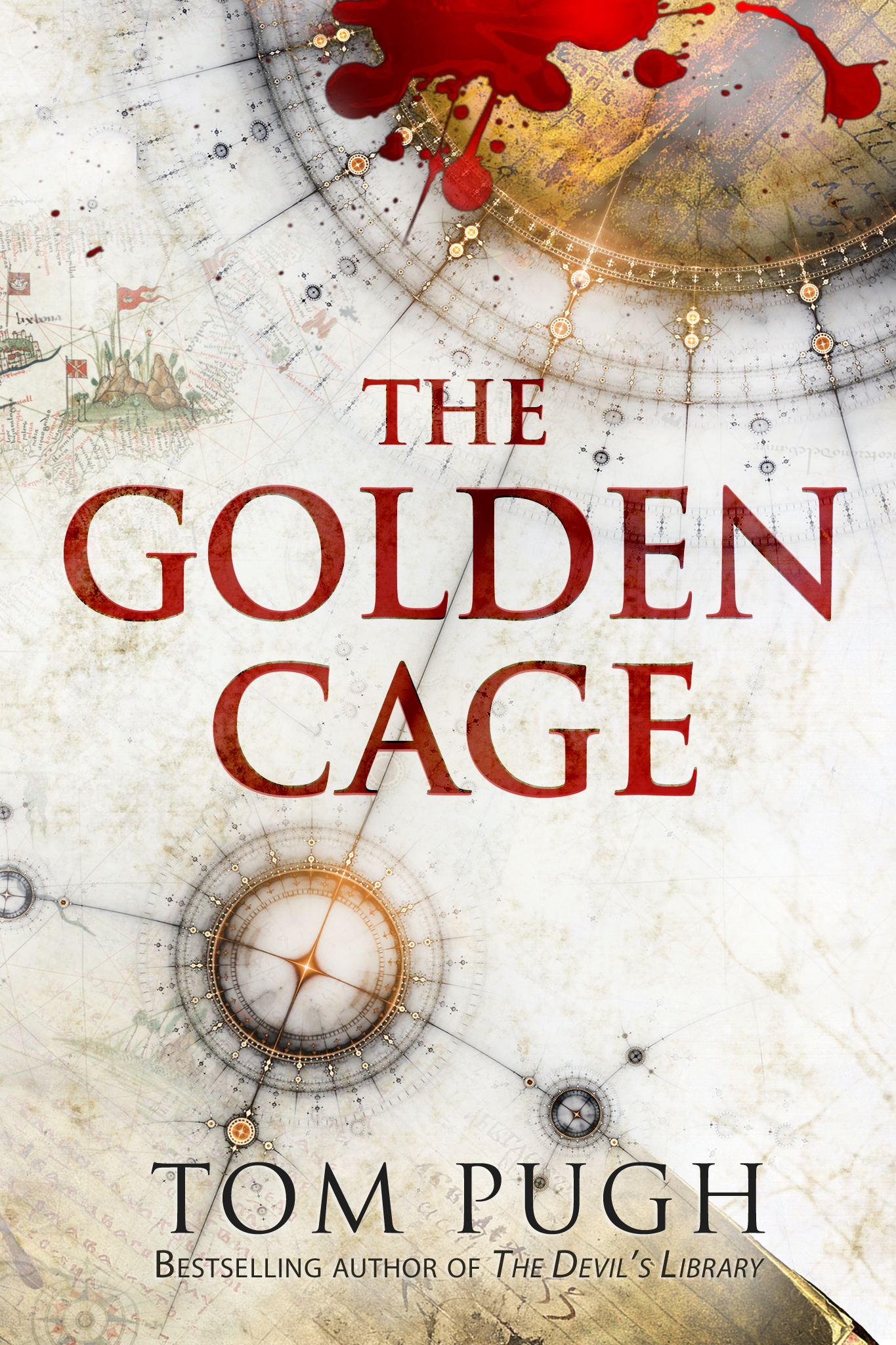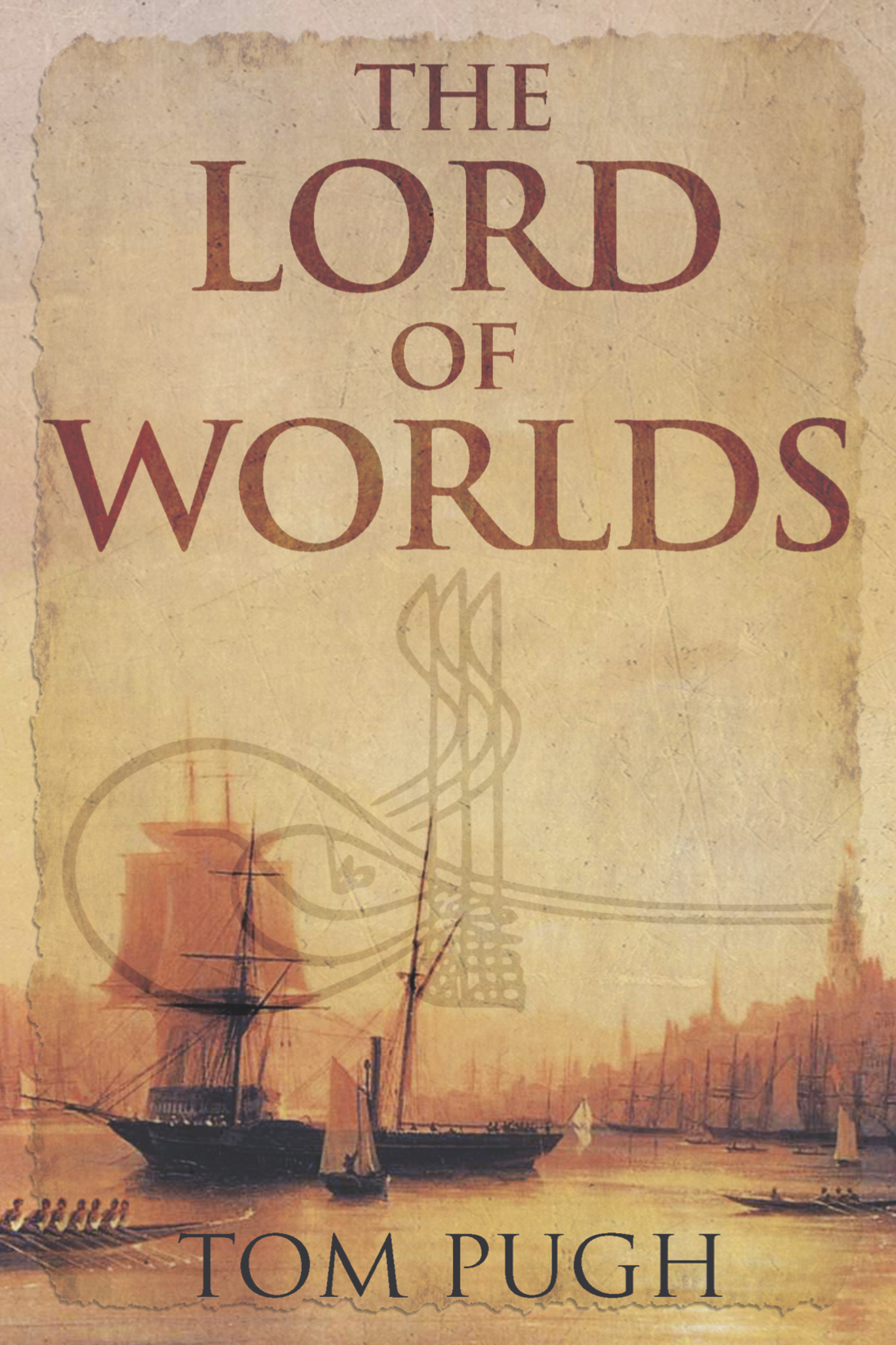The Devil’s Library | Book #1 in the Longstaff Trilogy
Back cover | About the author | A note on the period
“A gripping, atmospheric debut. I couldn’t put it down.”
Eve HarrisBooker longlisted author of 'The Marrying of Chani Kaufman'
Back cover
The Otiosi? As far as Matthew Longstaff knows, they’re just a group of harmless scholars with an eccentric interest in the works of antiquity. When they ask him to travel east, to recover a lost text from Ivan the Terrible’s private library, he can’t think of anything but the reward – home. A return to England and an end to the long years of exile and warfare.
But the Otiosi are on the trail of a greater prize than Longstaff realises – the legendary ‘Devil’s Library’. And they are not alone. Gregorio Spina, the Pope’s spymaster and Chief Censor, is obsessed with finding the Library. It’s not the accumulated wisdom of centuries he’s after – a swamp of lies and heresy in his opinion – but among the filth, like a diamond at the centre of the Devil’s black heart, Spina believes that God has placed a treasure, a weapon to defeat the Antichrist and pitch his hordes back into hell.
Only Longstaff, together with the unpredictable physician, Gaetan Durant, can stop Spina using the Library to plunge Europe into a second Dark Ages. The two adventurers fight their way south, from the snowfields of Muscovy to the sun-baked plains of Italy, where an ageing scholar and his beautiful, young protégé hold the final piece of the puzzle. But is it already too late? Can the four of them take on the might of the Roman Church and hope to win?
About the author
After studying art history in Glasgow, Tom Pugh invented a career as a travelling copywriter and teacher, living and working in London, Sydney and Tokyo before settling in Berlin with his wife and two children. The Devil’s Library is his first novel, inspired by his own overland journey from Moscow to Naples.
A note on the period
At the dawn of the fifteenth century, life in western Europe – while often short and unpredictable – was underpinned by a belief system unchanged in a thousand years; a state of affairs which had persisted since Christianity became the state religion of the Roman Empire and set about the systematic destruction of works by pre-Christian writers.
The Church’s long monopoly on knowledge was only broken in the first half of the fifteenth century, when the works of Lucretius and Plato were rediscovered (in 1417 and 1438 respectively). The ideas contained in the works of these two authors played a major role in unleashing the astonishing wave of new thinking known as the renaissance (or ‘re-birth’), leading ultimately to the collapse of the worldview promoted and refined by the Christian Church over the previous millennium.
In The Devil’s Library, Longstaff, Aurélie and Durant search for a long-forgotten collection of thousands of the works of antiquity at a time when the first rush of excitement brought about by the rediscovery of Plato and Lucretius is already congealing. What had briefly been a battle between people who believed in the supremacy of revelation (God’s word) versus people who believed in the supremacy of reason (Man’s intelligence) has now descended into a battle between two competing interpretations of God’s word; the ‘Catholic’ Christian Church against the various Lutheran or ‘Reformed’ Christian Churches. By finding the library and reintroducing its forgotten works to the world, Longstaff and his friends hope to fan the embers of a revolution begun one hundred years earlier – and thwart a series of temporal and religious leaders taking increasingly violent measures against any threat to their authority.
The Golden Cage | Book #2 in the Longstaff Trilogy
Back cover | About the author | A note on the period
Back cover
1565. Three years ago, Longstaff and Aurelie barely escaped with their lives from the fabled Devil’s Library. Now back in England, their hard-won peace is shattered when news arrives from France; their closest friend has disappeared.
In London, fledgling spy-master Francis Walsingham suspects a traitor on Queen Elizabeth’s Privy Council. In France, the physician Gaetan Durant is held at a secret location and forced to produce forgeries which will trigger a war. In Rome, the pope prepares a Bull of Excommunication against Elizabeth. Everything is connected. Trapped in this game of plot and counter-plot, Longstaff must journey to Paris in pursuit of his missing friend – and evidence of the enterprise taking shape against protestant England. Meanwhile in London, Aurélie’s attempts to track down the traitor lead to a lethal battle of wits against London’s most notorious astrologer.
Even if both succeed, it may already be too late. Wild, apocalyptic rumours race ahead of the separated lovers: of a lost Gospel in Christ’s own hand; of heretic queens and caged prophets. Only one thing seems certain – war is coming, an unholy inferno which threatens to consume all Europe…
A note on the period
At the dawn of the fifteenth century, life in western Europe – while often short and unpredictable – was underpinned by a belief system unchanged in a thousand years; a state of affairs which had persisted since Christianity became the state religion of the Roman Empire and set about the systematic destruction of works by pre-Christian writers.
The Church’s long monopoly on knowledge was only broken in the first half of the fifteenth century, when the works of Lucretius and Plato were rediscovered (in 1417 and 1438 respectively). The ideas contained in the works of these two authors played a major role in unleashing the astonishing wave of new thinking known as the renaissance (or ‘re-birth’), leading ultimately to the collapse of the worldview promoted and refined by the Christian Church over the previous millennium.
In The Devil’s Library, Longstaff, Aurélie and Durant attempt to discover the location of a long-forgotten collection of thousands of the works of antiquity at a time when the first rush of excitement brought about by the (re)discovery of Plato and Lucretius was already congealing – what had briefly been a battle between people who believed in the supremacy of revelation (God’s word) versus people who believed in the supremacy of reason (Man’s intelligence) had now descended into a battle between two competing interpretations of God’s word; the ‘Catholic’ Christian Church against the various Lutheran or ‘Reformed’ Christian Churches. The window opened by Plato and Lucretius was being firmly closed by a series of temporal and religious leaders willing to take increasingly violent measures against any threat to their authority.
A brief description of ‘the Massacre of Wassy’ will help to clarify this: under King Henri II, followers of the reformist church in France (known as Huguenots) faced persecution. After Henri’s death, his widow (Catherine de Medici) attempted to end this persecution and create the conditions for peaceful co-existence. The uneasy truce she brokered was torn apart on 1 March 1562 by Francois, Duke of Guise, when he came upon a large congregation of Huguenots in the town of Wassy. Exactly what happened next is disputed but ended in Francois ordering his men to lock a barn which the Huguenots had been using as their church and burn it down, resulting in the deaths of 63 unarmed men, women and children. From this point on, in France at least, there was no longer any room for compromise between the competing versions of Christianity.
Events related in The Golden Cage take place in 1565, three years after the Massacre of Wassy and seven after Elizabeth I was crowned Queen of England. Initially, Catholic Europe appears to have been unconcerned by the sudden appearance of a Protestant monarch on England’s throne. Perhaps this was because neither of Elizabeth’s two siblings had lasted more than a few years, and even if Elizabeth did prove more resilient than either Edward or Mary, she was still regarded as a mere woman. It was assumed that events would quickly see her cowed, coaxed or married into the true faith.
As months turned into years, however, the rulers of Catholic Europe grew impatient. Singly and together, with varying degrees of enthusiasm, King Philip of Spain, the pope, and the powerful Guise family in France were all increasingly inclined to play an active role in Elizabeth’s downfall. This was only partly for reasons of religion; Elizabeth’s England was a threat to Spanish shipping in the Atlantic and a thorn in Philip’s side as he sought to put down rebellion in the low countries, while for the Guise family, led by Charles, Cardinal of Lorraine, the prize was potentially even greater; his niece – Mary, Queen of Scots – was next in line to the English throne.
Plotters on the continent would also have been encouraged by divisions within the English court. The country had seen four different monarchs in eleven years, during which time the state religion had changed from something of Henry VIII’s own invention to something close to Lutheranism under his son Edward VI, then back to Catholicism under ‘Bloody’ Mary, before Elizabeth picked up where her father had left off with a bespoke form of Protestantism. The short reigns of Edward and Mary meant that these changes had taken place with bewildering speed, with the result that every English man and woman of note had been forced to deny their true beliefs – everyone was a liar, in other words, either now or in the recent past.
In such an environment, it should be no surprise that Elizabeth’s court reeked of fear and suspicion. The two principal factions (made up of many smaller cliques) were led by Robert Dudley – the Earl of Leicester and a childhood friend of Elizabeth’s who had nonetheless spent his youth soldiering for King Philip of Spain in an attempt to prove his loyalty to her older sister – and William Cecil and Nicholas Bacon – new men and committed Protestants who had nonetheless bent the knee to Mary while many of their co-religionists had gone into self-imposed exile on the continent.
The Lord of Worlds | Book #3 in the Longstaff Trilogy
Back cover
1569. Europe has closed her doors to English goods. Desperate to find new markets, Queen Elizabeth’s head of intelligence sends exiled soldier Matthew Longstaff east to start negotiations with the Ottoman Empire. Accompanied by his wife Aurelie, Longstaff arrives in a city unlike any he’s known before – an absolute monarchy without an aristocracy, an Empire governed by slaves, a system powered by jihad and uniquely tolerant of religious minorities.
The city is enchanting – and Longstaff’s mission impossible. Starved of resources, he finds himself drawn into a game of piracy and blackmail. A trade agreement lies within his grasp when suddenly the stakes are raised again. A greater prize now tantalises – one with the power to change the world forever.
But time is running out. As Longstaff’s enemies pursue him relentlessly through the streets and palaces of Istanbul, it will take all his strength – and all Aurelie’s cunning – to secure his prize and escape the Lord of Worlds.


